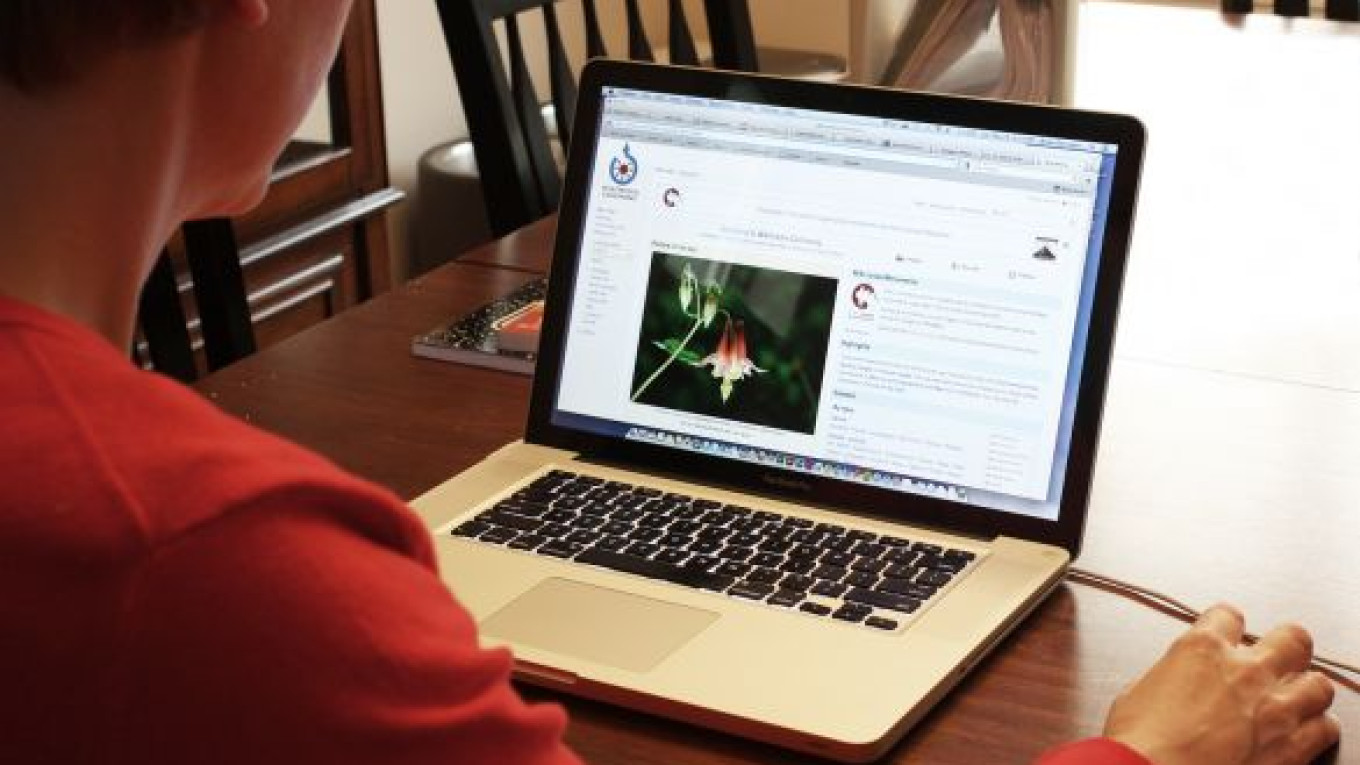In an incident that led to confusion and anger on the Russian-speaking Internet, a handful of YouTube webpages appeared on the government's Internet blacklist on Wednesday — only for officials to say YouTube as a whole wouldn't be affected and the webpages had been listed partly by mistake.
Meanwhile, Google Russia, part of the Internet giant that owns and operates the popular video-sharing service, said it didn't have any information about blacklisted pages — but that its parent company is responding to the government's notices on blacklisted videos.
Under an Internet law that came into force Nov. 1, the government has been empowered to build an official list of web-based materials — the blacklist or "registry" — that it deems harmful to children or illegal and to block that material on Russian Internet networks.
Scores of media outlets carried news of YouTube pages appearing on the blacklist, while some online portals and newswires wrongly ran the headline "YouTube Banned In Russia."
In response, the Communications and Press Ministry agency that maintains the registry said Wednesday that some YouTube webpages had been blacklisted but the illegal material then had been yanked from YouTube.
"The undesirable information is deleted, and the [YouTube] website address persisted on the registry for some amount of time because of a technical malfunction," the agency said, Interfax reported. "However, by [5 p.m.] Moscow time, we had removed it from the registry."
Earlier in the day, a spokesman for the agency, the Federal Mass Media Inspection Service, had underscored that only individual webpages, not the whole YouTube site, would be blocked.
"What was entered in the registry was not YouTube's big server, but some of its webpages with banned materials," spokesman Vladimir Pikov said.
The Internet law allows material to be blacklisted by its webpage address, which could lead to the blocking of that single page, or by IP address or domain name, which could lead to the blocking of an entire website. A website owner and its web-hosting provider have 48 hours total to delete blacklisted material from the time the state notifies the provider and before it begins to block access.
Meanwhile, Google Russia said it knew nothing about any blacklisting of videos on YouTube.
Google Russia had no information about banned materials, Alla Zabrovskaya, a Google spokeswoman for Eastern and Central Europe, said by e-mail Wednesday night, explaining that the agency is supposed to e-mail notices "to the head office of Google Inc. or YouTube LLC," both in California.
Responding to a question about whether Google would preserve or delete material found to violate the Internet law, Zabrovskaya said "the appropriate teams at YouTube LLC and Google Inc. are cooperating with [the agency] on notifications about blocking illegal content."
Written with the stated intention of protecting children from Internet dangers, the law bans Internet material displaying child pornography, soliciting children for porn, encouraging drug use or promoting suicide. It also contains a less-specific ban on distributing content that is illegal under Russian law.
Related articles:
A Message from The Moscow Times:
Dear readers,
We are facing unprecedented challenges. Russia's Prosecutor General's Office has designated The Moscow Times as an "undesirable" organization, criminalizing our work and putting our staff at risk of prosecution. This follows our earlier unjust labeling as a "foreign agent."
These actions are direct attempts to silence independent journalism in Russia. The authorities claim our work "discredits the decisions of the Russian leadership." We see things differently: we strive to provide accurate, unbiased reporting on Russia.
We, the journalists of The Moscow Times, refuse to be silenced. But to continue our work, we need your help.
Your support, no matter how small, makes a world of difference. If you can, please support us monthly starting from just $2. It's quick to set up, and every contribution makes a significant impact.
By supporting The Moscow Times, you're defending open, independent journalism in the face of repression. Thank you for standing with us.
Remind me later.


